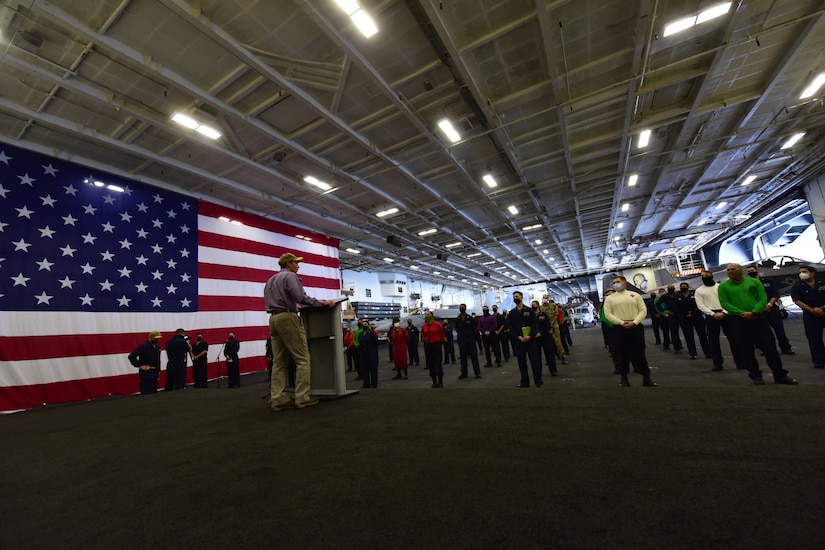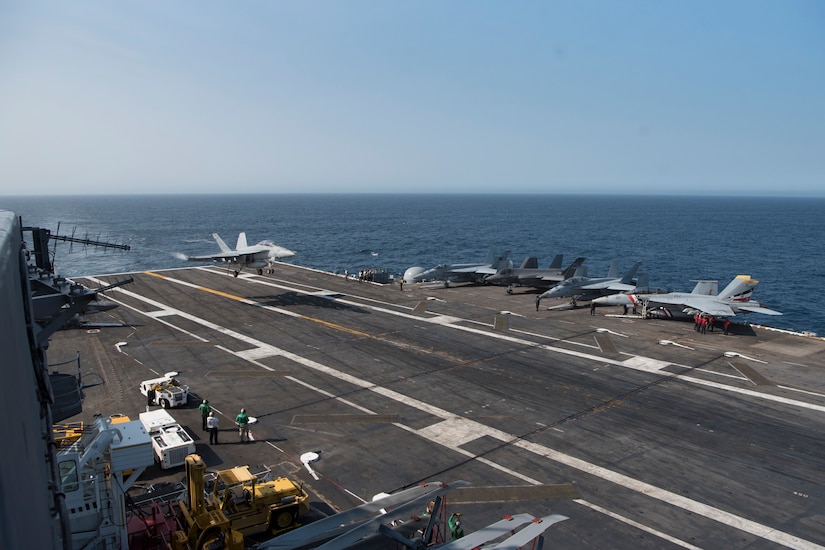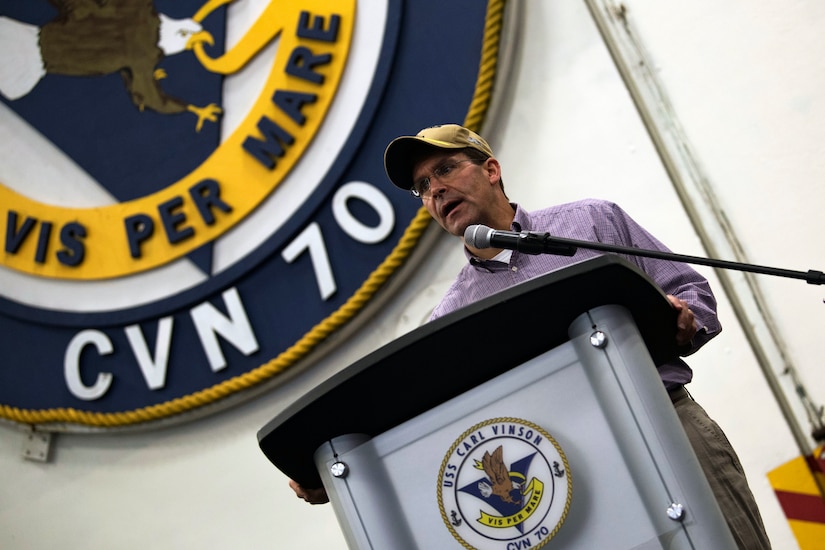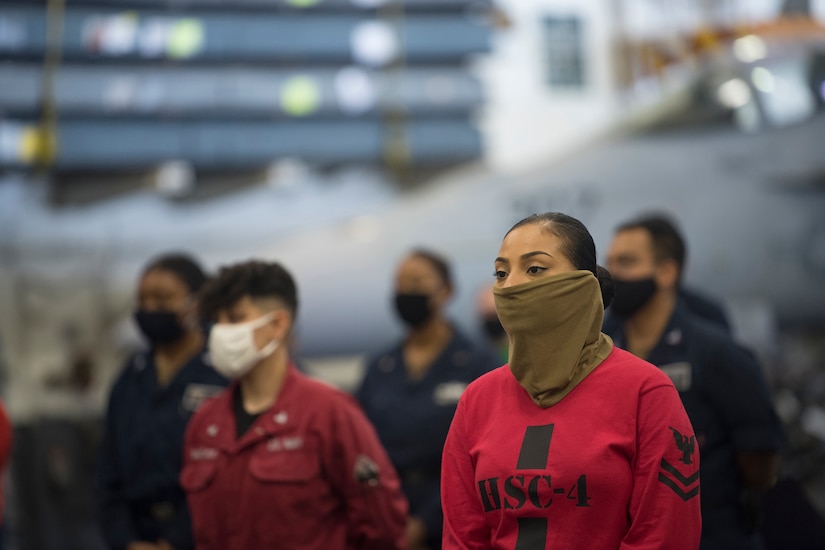
Yesterday, a sailor asked Esper if aircraft carriers will continue to play a central role in the Navy or go the way of battleships, which are no longer in the fleet.
The secretary assured the sailors that carriers will not be going away and will continue to play a pivotal part in defense strategy.
Besides their lethality, carriers, along with the other ships, are important for showing America's presence abroad and its commitment to allies and partners and deterring bad behavior from others, he said.

The Navy also plays the key role of maintaining freedom of navigation and commerce around the globe, he added.
Looking into the future, the Navy will have a more balanced force, which can deliver effects from all domains: sea, land, air, space and cyberspace, he said.
A more balanced force, he noted, will include surface, subsurface and air unmanned vehicles. "Unmanned will enable us to grow the United States Navy well beyond 355 ships. It will add more lethality, survivability and capability."
Another sailor asked how the U.S. aircraft carrier fleet stacks up against those of the rest of the world.
"We have the most advanced aircraft carriers in the world, and we have more of them than anybody else, and we will continue to maintain that overmatch," Esper replied.

That overmatch is not just the number of planes or self-defense systems a carrier has, it's the sailors and leadership of the officers and noncommissioned officers, how effectively they work together, how quickly they turn aircraft, launch and retrieve, Esper said.
Besides having good leaders, the Navy and Marine Corps team has the best training, readiness, operational art and doctrine of any navy, he added.
An important part of boosting readiness is the Navy's commitment to ensuring sailors' health and fitness and taking care of their families, he mentioned.

A third sailor asked what the department is doing in the face of the growing military threat from China, which has been modernizing its forces.
"We need to outcompete China and are doing just that," he said. "We are going to maintain that overmatch."
The department has the largest research and development budget in history, and it is investing heavily in such technologies as artificial intelligence; a 5G network; unmanned ground, air, surface and undersea vehicles; and hypersonics.
Esper said, "AI will be a game-changer. It will change the character of warfare."








No comments:
Post a Comment